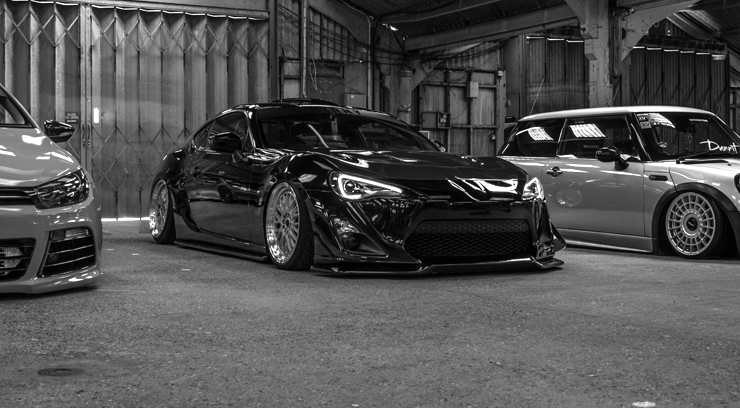Should You Buy a Modified Car?

Modified cars are some of the most interesting choices available on the used car market. Each owner has stamped a piece of their personality onto what was just another production vehicle. With these unique modifications comes some unique questions. Let’s take a look at buying a modified car.
First off, let’s cover the basics. There are many types of modified vehicles, but they generally stick to a few categories.
- Performance mods increase the vehicle’s horsepower, or make it handle and/or stop better than the day it left the factory. This can be anything as simple as a performance tune or cold air intake, or as extensive as a stroker assembly or engine swap. These cars can look completely stock, while out performing their contemporaries.
- Visual modifications change the way the vehicle looks. This can be as simple as aftermarket wheels, or as involved as body kits and wild paint.
- Audio/Visual modifications is the other big common one you are likely to run into when looking at used vehicles. With the integration of factory navigation and infotainment systems, these are becoming less rare. Mods can be just an upgraded stereo and speakers, or a show-worthy ride filled with multiple large screens and unbelievable bass.
Of course, that doesn’t cover all the modifications out there, and any vehicle can have some mix of the above three. Also, this assumes all aftermarket parts. Custom cars can include truly custom work, such as a sheet metal intake manifold, or hand painted pin striping. Generally speaking, those will only sell to collectors and fellow enthusiasts.
Now, let’s say that you are looking for used Ford Mustangs, as there are literally hundreds of thousands of modifications possible for this one model. Check out a ‘stang forum and you’ll quickly see owners have a saying: “There’s no such thing as a stock Mustang.” This is because the cars are affordable enough for many enthusiasts to buy new, and a depreciation hit makes them available to nearly everyone who has different ideas on what is their perfect Mustang.
This is where you run into huge chrome wheels with rubber band sized tires, improperly lowered with cut springs, or the EFI ripped out in favor of a race-ready carburetor. Remember how I said modding is an expression of their personality? Keyword is their personality. You might sit your butt in that car and want performance modifications, but dislike these particular mods, or wonder why the brakes weren’t touched, or why they went with that cam. It’s the previous owner keeping their mark on your ride, and that’s not cool. This is exactly why modified cars have lower resale values versus a factory stock car in the same condition.

On the other hand (hoof?), you might be looking at Terminator Mustang (’03-’04 Cobra). What you’ll run into here many times is a stock looking car with an intake, tune, exhaust and pulley. This simple package of bolt-ons runs about $1,500, but puts over 100 additional horsepower to the wheels. This is a modified car that absolutely makes sense, as it does little to drivability, but a ton for performance. This old Mustang is an almost factory car that can compete with a brand new Viper. Lots of owners perform these modifications, and many new owners would likely do them anyway, so this is an example where performance mods do not hurt the resale value at all. However, they do not raise the resale price. That $1,500 was very well spent, but increases resale value by $0.
This is why some enthusiasts recommend not modding a vehicle you are going to quickly resell. You can drop thousands on just one segment of modding, or go nuts on performance, looks, and entertainment, but it will all do little to affect resale value. In fact, that Corolla with the scissor doors and the bass Beethoven can hear is worth a lot less than a well-kept factory Corolla.
So, like any car buying decision, that brings us to your point of buying the car.
Do you need basic transportation for commuting? Then a modified car is not for you. You are better off with the reliability and warranty of a factory vehicle.
Are you going to flip it for profitable resale? Good luck, but with the depreciation hit, that’s the equivalent to buying heavily into GM stock in 2008.
Do you want to show it? Alright, sure, you can buy a modded car, but just don’t claim the work as your own.
Do you want to race it? Great choice. Depreciation makes the final car so much cheaper than the assembled value of its parts and labor. A Fox Mustang that runs consistent low tens might cost $10,000 to build, but won’t sell for near that. Again, don’t claim it as your own work.
Finally, do the mods matter to you? This is the key question on whether or not you should be handing over cash for this ride. Do the mods add value to you? If so, you may have found your perfect ride.

















































































































































































